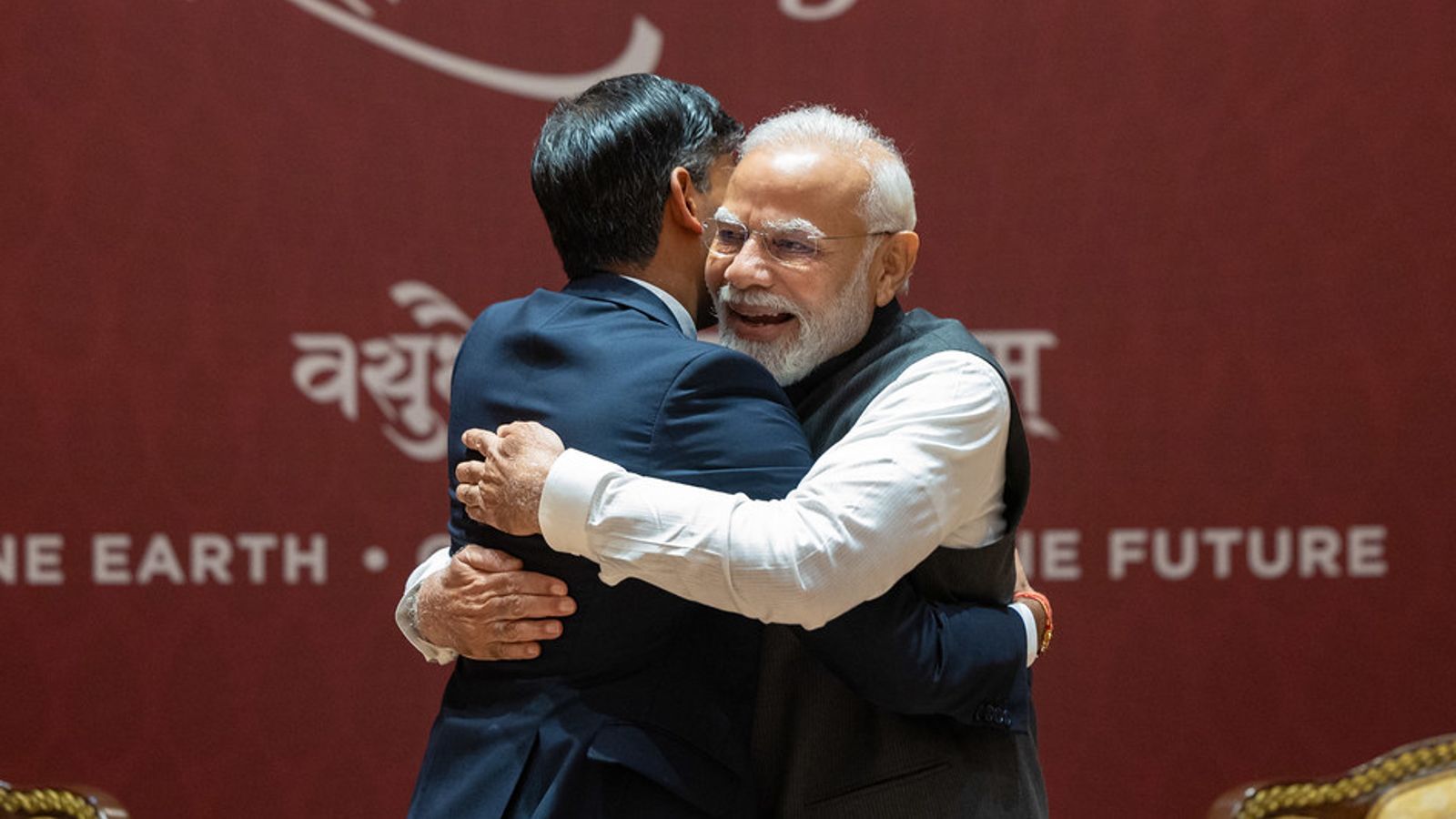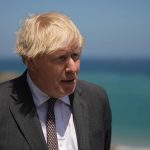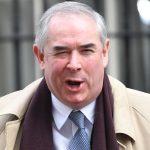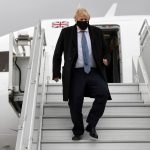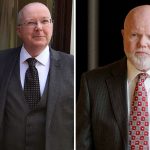An “absolutely beautiful” conference centre, an “excellent” summit, making “everyone proud”.
Even by the usual standards of glad-handing you see at international summits, Rishi Sunak’s comments to Narenda Modi, the Indian prime minister, showed him extremely eager to make a good impression.
The two had a meeting lasting less than 20 minutes at the summit, but for the UK prime minister it was a crucial one to assess the will to make a trade deal happen in the coming months.
Mr Sunak said it had been “warm and productive” and Downing Street said the two had agreed to ask their teams to work “at pace” to make it happen.
Political will is important to making the necessary compromises, and Mr Sunak suggested he was inching closer to it.
In his most upbeat assessment, he told an Indian broadcaster that “enormous” progress had been made. But whether any deal that is struck is actually “comprehensive and ambitious” is the real test.
The prime minister’s comments to me on Saturday, that India is keen to deepen the relationship in defence and security, shows how these issues – not included in the trade deal, but relevant given India’s longstanding reliance on Russian arms – are done in parallel.
G20: Rishi Sunak meets Narendra Modi for trade talks – and is ‘confident’ of securing deal
Rishi Sunak ‘entirely confident’ Conservatives will win general election despite polls
Politics latest: PM says deal with India not a ‘given’ at G20 summit; Truss and Kwarteng haven’t spoken about firing since it happened
But he would not confirm whether he had asked Mr Modi to use his influence to restrain Vladimir Putin, as Downing Street had suggested he would, though he denied he was ducking difficult conversations.
The G20 summit, which has transformed Delhi with lights, huge banners and gardens and a gleaming new conference centre, has been a huge moment for India, which holds the presidency.
There was concern that the G20 leaders would not be able to agree a leader’s declaration, given their splits on Russia and Ukraine, for the first time in its history.
But to loud applause, Mr Modi announced they had reached agreement, with language that Mr Sunak described as “very strong about Russia’s illegal war in Ukraine”, something he and allies had been “keen to highlight.”
Click to subscribe to the Sky News Daily wherever you get your podcasts
It had been hanging in the balance.
Until late last week, there had been no agreement in the ministerial meetings for the group which Russia and China could agree on, and the sections on the geopolitical situation remained blank.
Read more:
UK-India trade deal ‘not a given’ – here’s why
Analysis: G20 exposes how low bar for success is
Sectarian violence between Hindus and Muslims on rise In India
The statement avoids directly criticising Russia’s invasion but calls on all states to refrain from seizing territory, condemns nuclear weapons, and highlights the impact on global food prices. It makes clear, though, that members have different views on the situation.
A successful summit for Delhi, despite the splits behind its slogan of “One Earth, One Family and One Future”.
But whether Mr Sunak – who says he’s aware of being referred to as “India’s son-in-law” – can take any domestic or international successes home from his charm offensive, will take a few more months to become clear.
